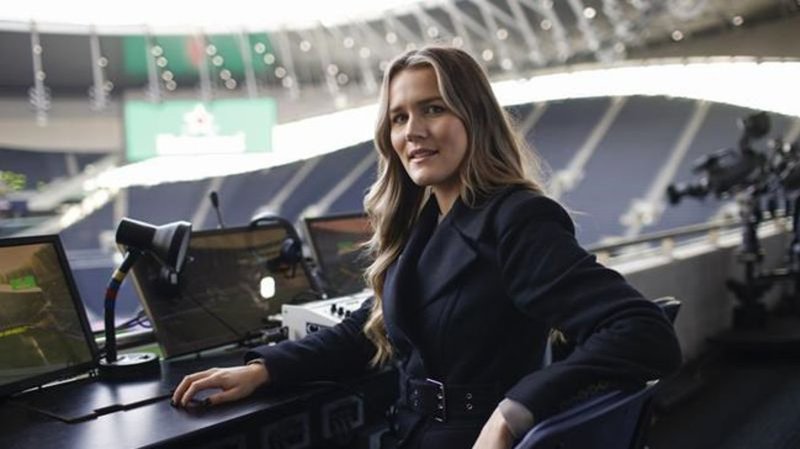
Women break through as World Cup play-by-play voices
The World Cup will sound different this year.
Jacqui Oatley will become the first woman play-by-play commentator for U.S. World Cup telecasts, heading one of Fox’s five broadcast teams for the tournament in Qatar that opens Sunday.
Pien Meulensteen, Vicki Sparks and Robyn Cowen are among the broadcasters for matches on BBC in Britain.
“Loads of people will have negative comments about women and women commentators and that’s because that’s just the way that they think. They’re not open to hearing anything different,” said Meulensteen, the 25-year-old daughter of former Fulham manager and current Australia assistant coach René Meulensteen.


